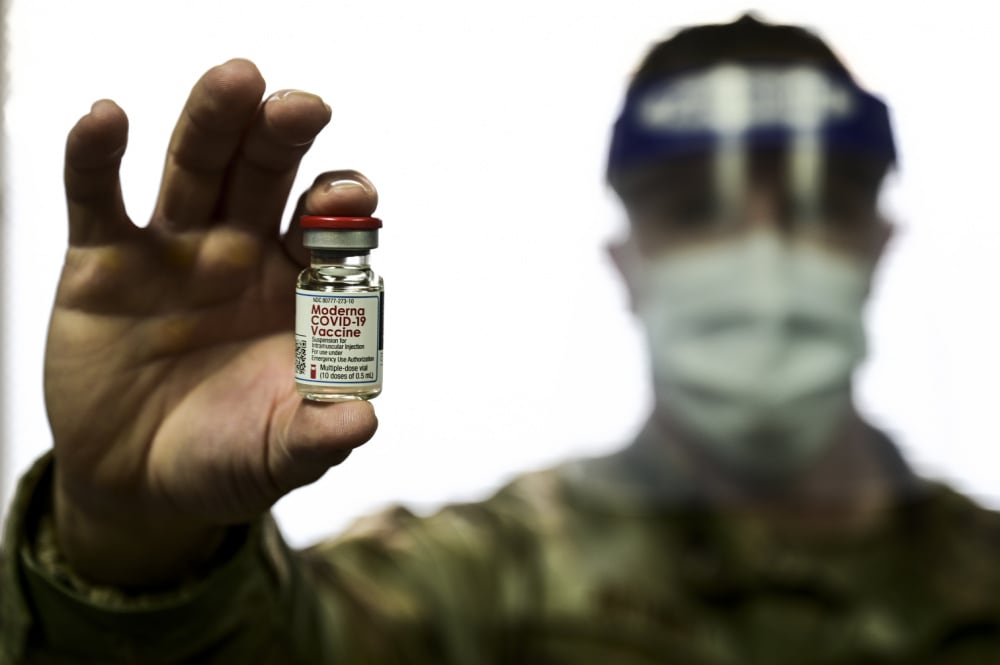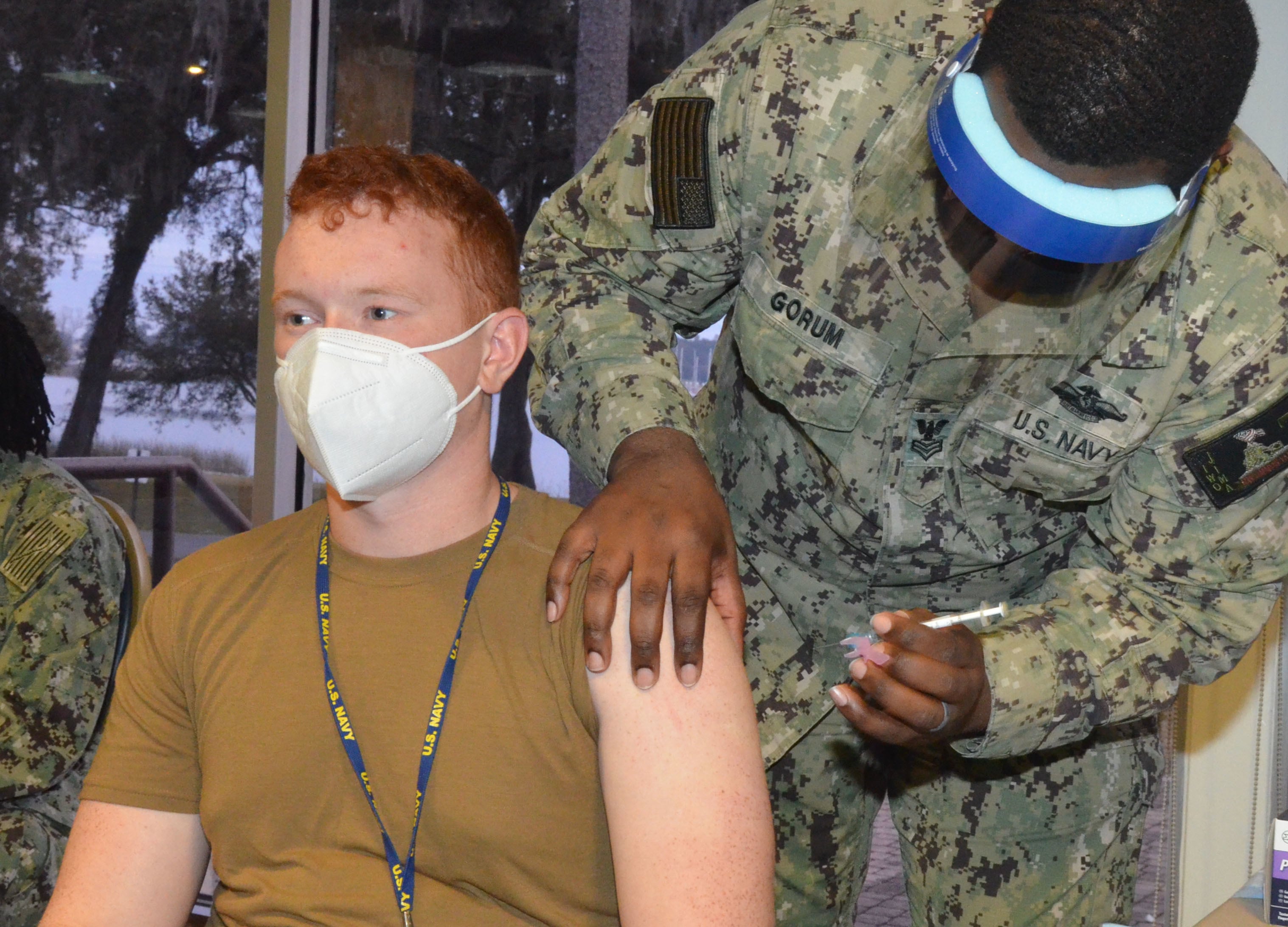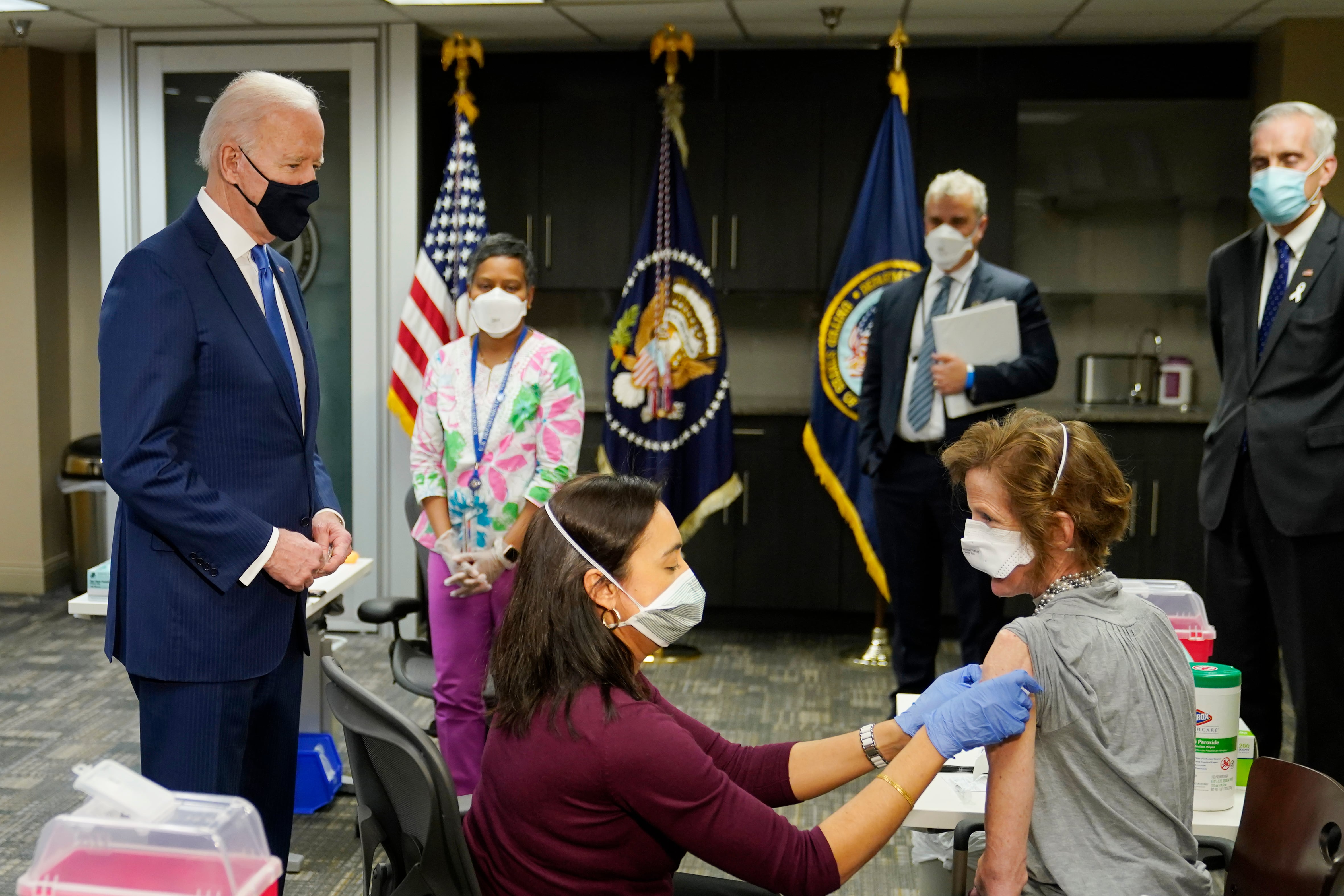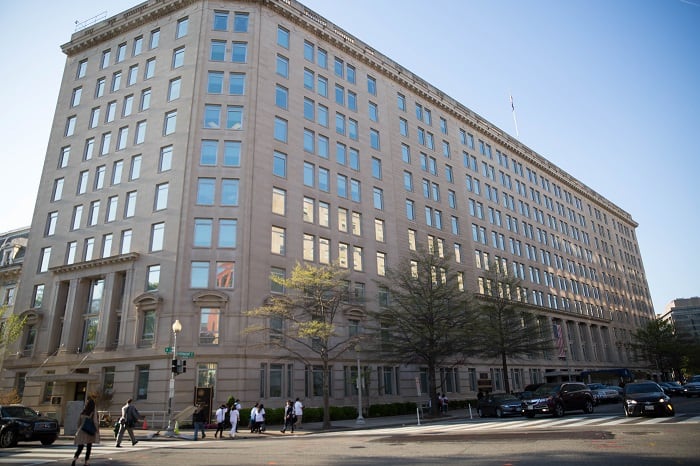A group of lawmakers is calling on President Joe Biden to make the COVID vaccines mandatory for all military members.
Calling unvaccinated troops “a critical threat to our national security and public health,” U.S. Rep. Jimmy Panetta, D-Calif., sent a letter to the White House Wednesday urging Biden to issue a “waiver of informed consent” that would force troops, if ordered, to get the vaccines as soon as they were eligible.
“Vaccinating every eligible servicemember will improve readiness and have an immediate and positive impact on the communities in which they serve,” Panetta wrote. “Requiring DOD to obtain informed consent prior to vaccination is not only harmful to our national security, but contrary to the best interests of servicemembers, their families, communities and colleagues.”
The letter, co-signed by six other congressional Democrats, cites testimony by military officials last month that roughly a third of servicemembers had thus far declined the COVID-19 vaccines.
A December report from the nonprofit advocacy group Blue Star Families found that just 40 percent of active-duty troops planned to get the vaccine, while 49 percent planned to decline it and 11 percent were undecided.
RELATED

In Wednesday’s letter, Panetta also alluded to media reports highlighting vaccine disinformation and skepticism within the ranks, hesitancies recently highlighted by Military Times.
Troops told Military Times their reluctance was based on the speed with which the vaccines were developed and the potential for unknown side effects, concerns that medical experts say are largely unfounded.
Because the U.S. Food and Drug Administration approved the vaccines under an emergency-use authorization, the military brass cannot mandate the shots like they do with influenza jabs and other inoculations, although each service has embarked on a social media campaign encouraging troops to get vaccinated when their number is called.
Panetta pointed to the mass COVID outbreak aboard the aircraft carrier Theodore Roosevelt last spring that infected roughly a quarter of the sailors onboard, as well as recent outbreaks on ships deployed to the Middle East, as examples of why the vaccines should be mandatory for the military.
Troops have endured onerous pre-deployment quarantine periods in the past year to ensure their units deploy COVID-free.
“Our military readiness continues to be negatively impacted by scaled down or cancelled joint exercises, and families bear the burden of extended deployments and quarantines,” Panetta wrote.
While the congressman lauded the Pentagon’s outreach touting the safety and efficacy of the vaccines, he noted that “these efforts have been outpaced by disinformation dominating social media.”
RELATED

“The most effective tool the Department may utilize to ensure widespread vaccination is a mandate,” Panetta wrote.
Such mandates have been used in the past for FDA-approved drugs that include smallpox and anthrax vaccinations, according to the letter.
Panetta wrote that waiting out the FDA’s lengthy process for granting full and final approval for the three approved COVID vaccines “will waste precious time in the Department’s fight against this virus,” and that troops will eventually be required to get the vaccines regardless.
Military leaders have indicated in recent months that they will make COVID vaccination mandatory as soon as they can.
“However, immediate action through a waiver of informed consent will undoubtedly save lives,” Panetta wrote.
Officials in Panetta’s office say the percentage of military members declining the vaccine could increase as it is offered to more troops who aren’t medical staff, deploying or in other frontline capacities.
RELATED

Legally, Biden could make the COVID vaccines mandatory, according to a February blog post by Duke University’s School of Law.
The post, guest-authored by Army attorney Maj. Whitney Wiles, points out that, under 10 U.S.C. § 1107a, the commander in chief can require servicemembers to accept vaccines approved under an emergency use.
“In such cases, the President must determine that complying with the informed consent requirement would not be in the interest of national security,” Wiles wrote.
There has thus far been no indication that Defense Secretary Lloyd Austin has sought such a presidential waiver, she wrote, and Biden signaled before inauguration that he would do everything in his power to encourage Americans to get the vaccines.
Officials with the Pentagon and White House did not immediately respond Wednesday to requests for comment regarding Panetta’s letter.
If the vaccines are made mandatory and a service member refuses a commander’s order to get the jabs, legal consequences could follow, according to Wiles.
“(Troops) who willfully choose to disobey such orders risk punishment,” she wrote.
Any lawsuits against the government brought on behalf of vaccine-refusing troops would likely follow the path involving mandatory anthrax vaccinations in the early 2000s.
“Spoiler alert: Orders to receive the COVID vaccine would very likely be upheld as lawful,” Wiles wrote.
Vaccine hesitation has emerged as a potential problem when it comes protecting the military community from COVID.
The Blue Star Families December report found 54 percent of military spouses did not plan on getting the vaccines.
Seven in 10 respondents to Blue Star’s survey said they were concerned about the vaccines’ safety and efficacy.
RELATED

But Matthew Nathan, a retired Navy vice admiral and former surgeon general for the sea service, told Military Times earlier this year that large-scale testing of the vaccines before their FDA approval would have unearthed any major health risks.
People are more likely to have a health problem stemming from the virus itself rather than a problem related to the vaccine, he said, adding that while young people have not seen as many severe cases as older people, the disease can still strike in ways no one fully understands yet.
And while the Pfizer and Moderna vaccines are new, the modified RNA technology at the heart of the shots is not and has been in development for years, Nathan said.
“Based on the initial science and based on the depth of [modified RNA] studies that have gone on years before, there’s nothing to indicate this is going to create long-term effects,” he said.
Geoff is the managing editor of Military Times, but he still loves writing stories. He covered Iraq and Afghanistan extensively and was a reporter at the Chicago Tribune. He welcomes any and all kinds of tips at geoffz@militarytimes.com.




